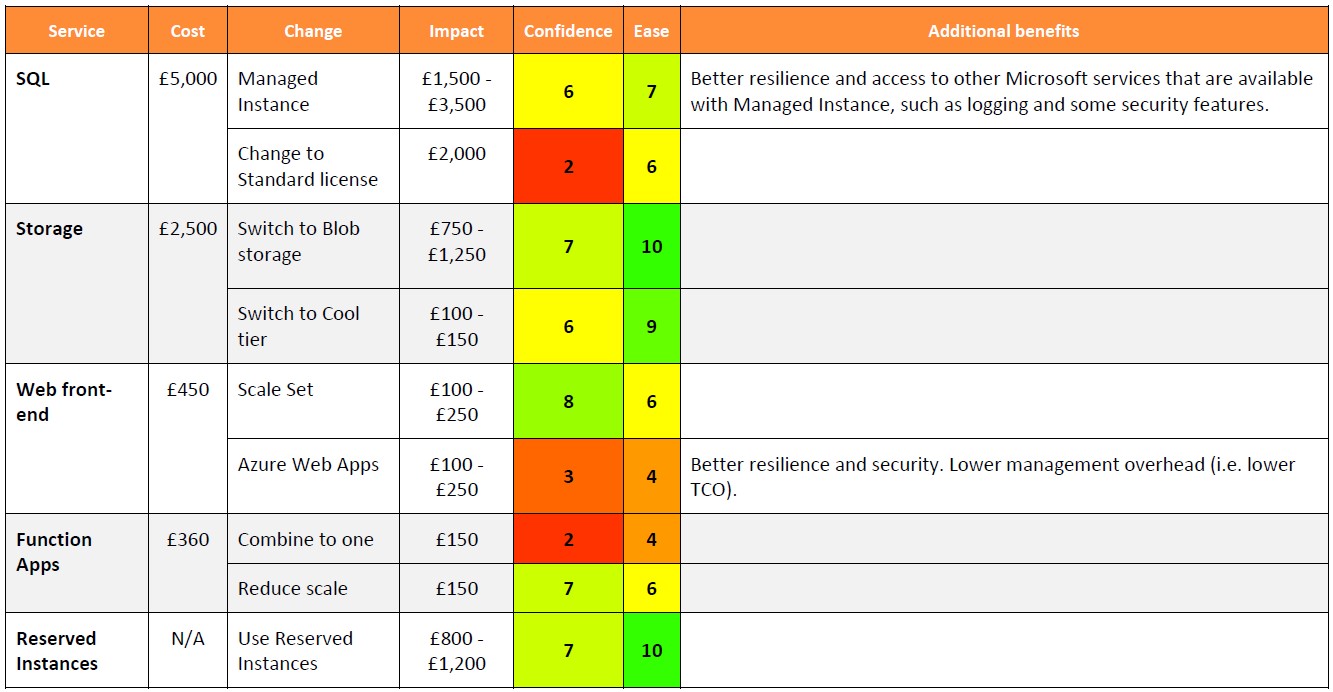
Migrating an on-premise or co-lo hosted application to a true cloud environment can be daunting. It is easy to just move an application to the cloud, but the fundamental constraints are simply different and requires you to rethink your architecture to get the most out of the Cloud.
Migrating an application to Azure can be as simple as just putting it on a Virtual Machine in Azure; however, if you want to reap the full benefits of the Cloud, you may need to re-think some aspects of how you work. The rewards can be tremendous, in terms of cost saving, increased agility and better customer experience.
NewOrbit has more than a decade’s experience in developing for the Cloud and can help you map out your journey.
One of the biggest challenges when migrating to any cloud provider is the bewildering range of options you have. For example, there are at least eight different ways to host a website in Azure and at least four different ways of hosting a SQL database – and just one of those has half a dozen different pricing models to choose from. We will help you navigate this to decide on the best solution for you.
Our process goes through the following steps:- Understand your business objectives
- Understand your technical situation
- Feasibility testing of specific parts, where required.
- Phased plan
- Implement in stages
- Operate and evolve
Each step is outlined in more detail below, with example questions. We will ask you many more questions during the consultation. Do bear in mind that many of the questions are over the top for many scenarios; we will evaluate the appropriateness with you based on your specific context.
| Area | Example questions |
|---|---|
| Understand your business |
|
| Align business value with IT spend |
|
| How do you manage IT? |
|
| What are your main drivers? | Ability to change quickly? Growth? Resilience? Security? Global reach? GDPR compliance? Saving costs? |
| What are your current pain points? | Stability? Costs? Lack of flexibility? |
What is your technical landscape and how do you operate it? Which parts are you looking to migrate to Azure? Some of these areas may not be relevant to you – we’ll skip them where that is the case.
| Area | Example questions |
|---|---|
| Overview |
|
| Hosting and Deployment |
|
| Application structure |
|
| Code Management |
|
| Pain points |
|
| Known performance bottlenecks |
|
| External dependencies |
|
The bottlenecks you tend to experience in the cloud are usually different from what you experience on-premise. Generally, you have a more controlled “performance envelope” that you have to fit within. Excessive I/O can be a problem as can relying on persistent, local file storage and using excessive memory.
There are ways to mitigate all of these, but in order to do so we usually have to measure and test. We often have a feasibility stage where we try to measure certain aspects of your system and run tests in Azure to establish the best solution for your unique situation. Sometimes we will also work with you to track the source of the issue in code and change the code, if required.
Phased PlanBased on everything we have learnt in the preceding steps, we will develop a phased plan with you. This will often entail moving to Virtual Machines in the first instance to “get you to the Cloud”, with subsequent phases moving you more and more to “Platform-as-a-Service” (PaaS) services, which will save you further costs and increase your scalability, resilience and flexibility.
ImplementNewOrbit will help you to implement the phased plan, being there every step of the way to ensure it all goes smoothly.
- We will set up the Azure environment for you, using our extensive experience of selecting the most appropriate tools for your situation.
- We will work with your technical team to migrate the code and systems.
- We will help you set up new monitoring tools.
- We will enable new security features for you.
We will provide you with a series of options for how you can reduce your cost, similar to the following.

Note: This is just an example – the list is usually a lot longer.
ImplementNewOrbit can help you implement some or all of the suggestions:
- We can help to make the configuration changes in Azure.
- We can work with your development team to investigate further what code changes may be required to implement other changes.
- We can help design the architecture you need to make better of use of cloud capabilities to reduce cost and increase scalability.
As you start to deploy systems to Azure, we are there to help you operate and evolve them, through our Azure support and access to our Azure experts. We have a team of highly experienced Azure architects as well as specialists in a wide range of Azure technologies. You have access to those as you need them and they can help you grow and evolve your system.
We offer a range of support plans to our Azure customers, from a responsive plan where we will respond to tickets raised by you, all the way up to plans where we actively monitor your application’s performance and respond to security alerts. For some of our clients, we are engaged to proactively monitor and raise potential performance or security matters with their solutions, make recommendations and, often, help to implement ongoing improvements.
We have a comprehensive Partner Support Contract with Microsoft, which allows us to escalate support tickets from our customers to priority support from Microsoft, as well as enabling us to engage Microsoft experts on proof-of-concepts and similar, with our customers.
Discover how our Azure services have helped clients across industries tackle challenges and innovate faster:
Why Automated Azure Cost Tools Aren’t Enough
by Frans Lytzen | 27/02/2026Automated Azure cost optimisation tools are useful — but they don’t tell the whole story. Especially if you’re building and running your own applications in Azure. Real savings often sit at the architecture and code level, where experience and application insight outperform generic automation.
The AI Adoption Paradox: Why Waiting for Strategy (or Rushing Ahead) Is Holding You Back
by Sean Worthington | 23/02/2026AI adoption often stalls between endless strategy and fragmented experimentation. Instead of choosing one, organisations can evolve both in parallel — building clearer objectives, growing confidence and delivering measurable value along the way.
AI in Core Business: Where Real Competitive Advantage Is Built
by James Gregory | 13/01/2026AI creates real competitive advantage when it’s embedded in core business decisions and workflows – not just support functions. Here’s why leaders must rethink where AI is applied to unlock meaningful value.